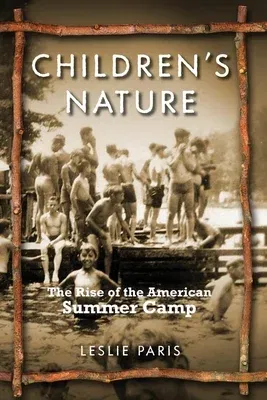For over a century, summer camps have provided many American children's
first experience of community beyond their immediate family and
neighborhoods. Each summer, children experience the pain of
homesickness, learn to swim, and sit around campfires at night.
Children's Nature chronicles the history of the American summer camp,
from its invention in the late nineteenth century through its rise in
the first four decades of the twentieth century. Leslie Paris
investigates how camps came to matter so greatly to so many Americans,
while providing a window onto the experiences of the children who
attended them and the aspirations of the adults who created them.
Summer camps helped cement the notion of childhood as a time apart, at
once protected and playful. Camp leaders promised that campers would be
physically and morally invigorated by fresh mountain air, simple food,
daily swimming, and group living, and thus better fit for the year to
come. But camps were important as well because children delighted in
them, helped to shape them, and felt transformed by them. Focusing
primarily on the northeast, where camps were first founded and the
industry grew most extensively, and drawing on a range of sources
including camp films, amateur performances, brochures, oral histories,
letters home, industry journals, camp newspapers, and scrapbooks,
Children's Nature brings this special and emotionally resonant world
to life.

